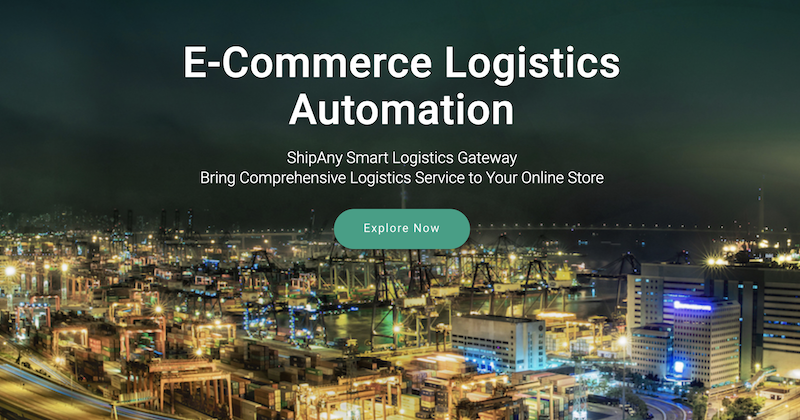As e-commerce continues to mature, transport-focused logistics companies are increasingly finding freight management to be a significant pain point due to the large number of clients they serve.
Recognizing this challenge, Hong Kong technology company ShipAny has launched a one-stop intelligent logistics platform. This platform leverages a cloud-based system to automate the connections between merchants, e-commerce platforms, and logistics service providers.
SMEs operating their own online stores often struggle with the investment required for electronic payment and logistics systems, as well as after-sales customer service support. With limited resources, these tasks can be particularly challenging. ShipAny aims to address these problems.
ShipAny Co-Founder Taurus Cheung, who has over 10 years of experience in enterprise software and cloud solutions, is optimistic about the development prospects for automated supply chain technology systems.
“In 2013, I founded a company to provide retail merchants with cloud-based enterprise resource planning (ERP) solutions. These included automated procurement, warehouse inventory management, sales, accounting, logistics, and other one-stop solutions for e-commerce and logistics,” Cheung said.
In 2019, the company launched ShipAny, a logistics platform that interconnects multiple e-commerce platforms and logistics service providers, enhancing and streamlining logistics operations for e-commerce merchants.
The COVID-19 pandemic, which struck shortly after ShipAny’s establishment, acted as a catalyst, accelerating the firm’s expansion by promoting online retail business in Hong Kong and globally.
Seeking to grow in line with this trend, the company set its sights on Taiwan and Thailand. The Taiwan branch, close to Hong Kong in geography and culture, opened in May last year. However, developing a business in Thailand presented language and regulatory challenges.
“I learned that the Hong Kong Trade Development Council (HKTDC) has 50 offices around the world and provides the Transformation Sandbox Programme (T-box) to help SMEs explore overseas markets. We joined T-box and sought support last year,” Cheung said.
As a Hong Kong technology company setting up business in Thailand, ShipAny needed to resolve issues related to licenses before entering the market. The T-box team and HKTDC’s Bangkok office helped the firm clarify regulations, including license types, application procedures, and accounting and financial documents, giving them the confidence to enter the Thai market. They also learned that foreign investors can hold no more than 49% of equity when opening a business in Thailand.
ShipAny formed a joint venture with a reliable Thai company to navigate these regulations. Their business, which involves e-commerce, required an e-commerce license and a local transport license.
Headquartered in Hong Kong, ShipAny now has subsidiaries in Taiwan and Thailand. Hong Kong’s status as an international shipping center enhances the city’s brands when expanding into overseas markets, allowing them to assert themselves effectively.
“Hong Kong has always been our main business market. We have 6,000 customers in Hong Kong and Taiwan, and about 1,000 customers in Thailand. However, business is expanding much faster in Taiwan and Thailand due to their larger populations and more mature e-commerce sectors compared to Hong Kong,” Cheung said.
Looking ahead, ShipAny hopes to further expand internationally by participating in HKTDC’s overseas activities and exploring other ASEAN markets, including Indonesia, Malaysia, Singapore, and Japan.















